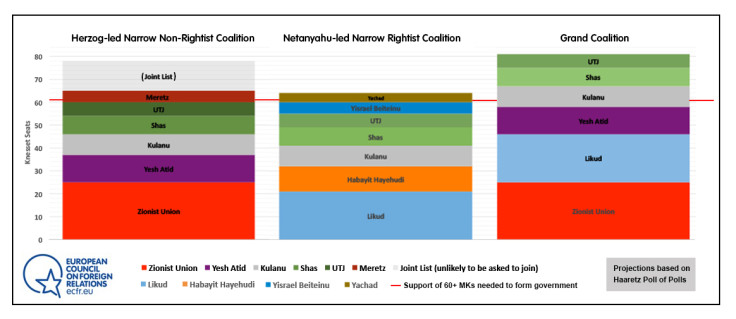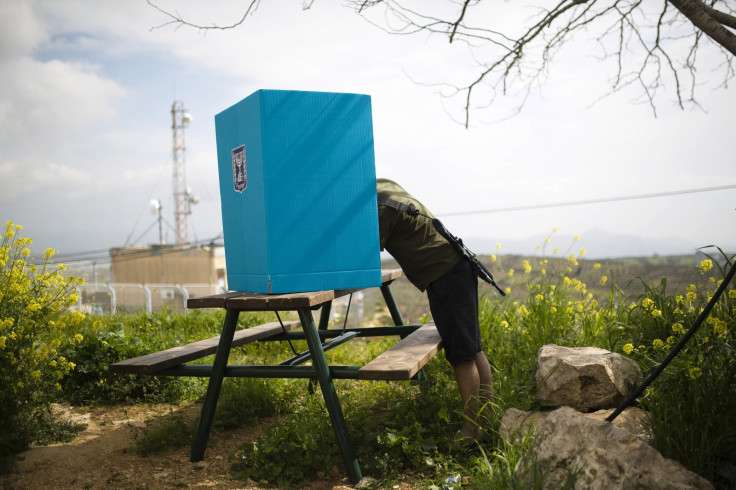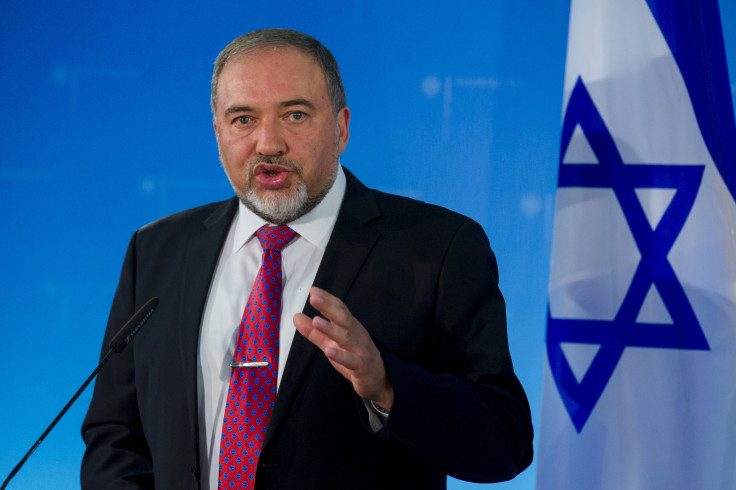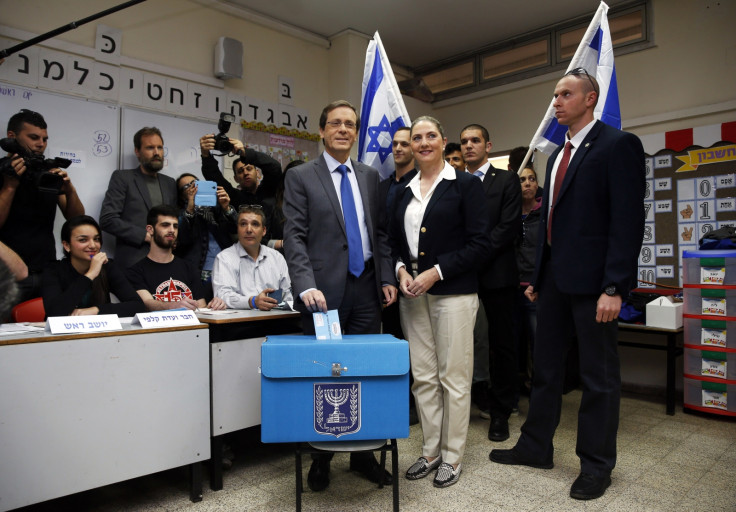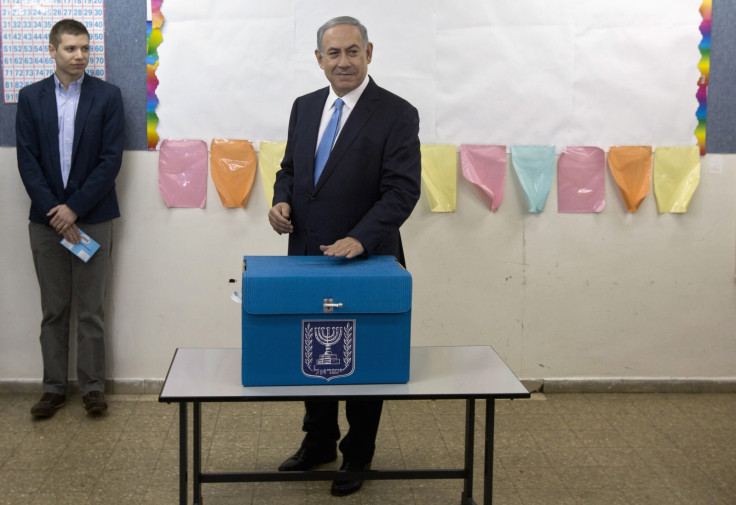Israeli election as it happened: March 17
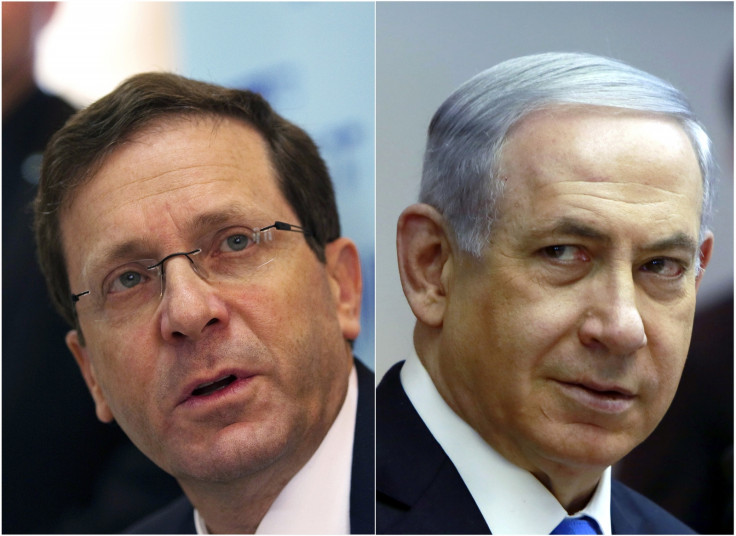
- Elections called last December by prime minister Benjamin Netanyahu
- Incumbent prime minister neck and neck with centre-left Zionist Union led by Isaac Herzog and Tzipi Livni
- There are 5,881,696 Israelis eligible to vote for the 120-member Knesset
- Voter turnout was highest since 1999
As the polls close in Israel, that is it from our live blog.
The exit polls will begin to trickle in over the next hour or so but even at this early stage it is clear that it has been very, very close. Two Israeli TV channels had Likud and Zionist Unity tied at 27-27 and 28-27 respectively.
As the votes are counted, both Benjamin Netanyahu's Likud Party and Isaac Herzog and Tzipi Livni's Zionist Unity coalition will be waiting to see if they have inched ahead and, as a result, are asked to form a government.
Even then, forming a workable coalition could take days, with some Israeli journalists predicting that Wednesday could bring even more uncertainty.
Keep your eyes peeled at IBTimes.co.uk for news of the final result.
Jerusalem Post's Ben Hartman spent this morning at a prison in Israel, talking to inmates about who they are voting for. He now reports that turnout amongst prisoners in Israel is at 81.74%.
He found most opting for left wing parties and Arab prisoners rooting for the Joint List of Ayman Odeh, which is poised for a record win today.
You can read his report here.
The Joint List of Arab parties headed by Haifa lawyer Ayman Odeh has launched a last minute get-out-the-vote campaign on Facebook, urging Arab voters in Israel to turn out against Avignor Lieberman and other right wing Israeli parties.
They say that Arab turnout is now at 55 per cent and another 15 per cent turnout would allow them to seriously dent far right parties such as that of Lieberman, who last week called for Arabs to be beheaded if they did not support Israel.
Likud has been bombarding its supporters with text messages today urging them to go out and vote and openly stoking anti-Arab sentiments.
Both Benjamin Netanyahu and his foreign minister Avignor Lieberman have also sought to persuade Israeli voters that choosing Zionist Unity over Likud would encourage terrorism in the country.
Daniel Levy, at the European Council on Foreign Relations, told IBTimesUK that Benjamin Netanyahu's speaking out against a two-state solution for Israel and Palestine was a new departure for the prime minister - even if his policies had always guaranteed the impossibility of either two states or peace.
"Netanyahu's rhetorical embrace [of the two state solution] at least allowed one to maintain the make-believe of having a peace process [...] Now we have the remarkable spectacle of Netanyahu having unmasked himself, which will make things more interesting if [he] wins," he said.
But he added that a vote against the prime minister was not neccessarily a vote in favour of either a two state-solution - or indeed peace.
"If Netanyahu loses, I would argue that this was a vote against Netanyahu not a vote for peace, that Israelis were more focused on the cost of living than the risk of dying," he said.
Benjamin Netanyahu's increasingly provocative, panicked and paranoid statements over the past couple of hours have been seen by many as the acts of an increasingly desperate man.
But they could equally be part of a canny election strategy, fear the rival Zionist Unity bloc, which reportedly told Israeli Channel 2 News that Bibi has done more interviews tonight than over the past six years.
Benjamin Netanyahu has ruled out a "grand coalition" with the Zionist Unity bloc according to Ynet.
The Israeli news site quoted him as saying he will: "form a government of the national camp (right-wing bloc)."
"A leftist government will be dependent on the Joint Arab List and will surrender all the way." he added.
"There will be no unity government with the Labor (Zionist Union) party, there is no way to bridge the gaps between us."
But as Dimi Reider commented below, Netanhayu may not have a choice when it comes to the crunch.
Another lovely table for all you election data geeks out there, this one courtesy of Haaretz. As Middle East analyst Oren Kessler points out, turnout is slightly lower than the last election but higher than the previous two.
Despite Benjamin Netanyahu's very open courting of Israel's right wing parties, Dimi Reider, co-editor of Israeli online news magazine +972, has told IBTimesUK that Bibi is more likely to seek a coalition with moderate or centrist parties
"Even if (Netanyahu) is reelected tonight, the lackluster showing of right-wing parties means he will need to include at least one centrist party in the coalition - most probably the smallest one, Moshe Kachlon's Kulanu," Reider said.
"We can confidently expect therfore that one of his first calls after polls close will be to Herzog, inviting him to form a 'national unity government' - a fancy word for conservatives-dominated gridlock."
But Reider says that Netanyahu will struggle to live down comments he made earlier today about Arab voters and the two-state solution for an end to the Israel and Palestine conflict - which could muddy the waters even further in relations between Israel and the US.
"Much of Israel's standing in the world, especially in Europe, hinges on commitment to a two-states solution - no matter how nominal," he said.
"Disavowing it will boost those pushing for greater political and economic pressure on Israel, or at least against any preferential treatment, especially in tightly regulated trade and research cooperations in Europe.
"It will be interesting to see whether and how he intends to row back on these comments."
Somewhat expectedly, Benjamin Netanyahu has bypassed his press conference ban by releasing a video on Facebook accusing his rivals of "flagrant electioneering".
"The 'Just not Bibi' party doesn't stop speaking in the media without anyone disturbing them. The only one they decided to prohibit from speaking in the media is me, the Likud prime minister," the Times of Israel reported.
He attacked Central Election Committee chairman Supreme Court Justice Salim Joubran - who ruled that a press conference he was due to give at his official residence was against election law - and said that "nobody will shut us up".
The Israeli media are now talking about former Likud minister Moshe Kahlon as a potential kingmaker once the polls close and the coalition horse-trading begins.
His Kulanu (All Of Us) party, which he set up last November, is projected to come fifth in the polls but that could provide much-needed votes to either Likud or the Zionist Unity coalition: especially if the Arab Joint List parties - who will not enter a coalition with either of the top two - come in third.
Jerusalem Post crime correspondent Ben Hartman revealed that police have received 738 reports of election fraud today – 51 of which will lead to criminal cases. These include today "people impersonating others at voting booths, theft of vote slips, threatening staffers."
The Israeli judge monitoring Israeli elections, Justice Salim Joubran of the Supreme Court, has banned Netanyahu's last-minute press conference from TV as it violates campaign rules.
The central election committee's decision came after Zionist Union and Yesh Atid parties appealed to the Supreme Court to bar the press conference.
Reuters has fascinating pictures of Israelis voting for the general elections. Here's a selection:
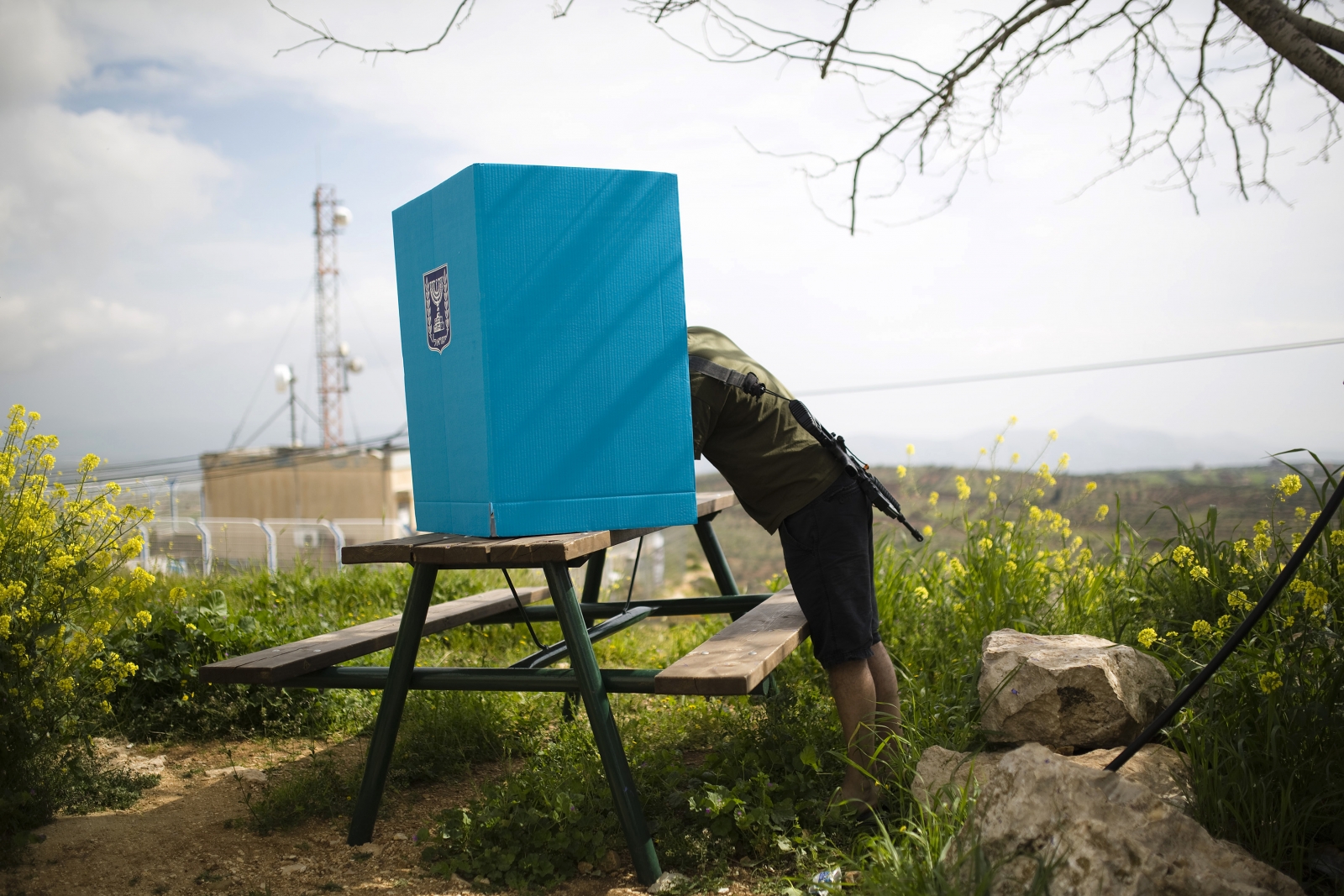



IBTimes UK senior reporter Umberto Bacchi takes a look at the possible outcomes of the vote.
Over the last few days, momentum seemed to be growing towards a government led by the Zionist Union with the support of most non-right wing parties with the notable exception of the joint list of Arab Israeli parties, the United List
Read the article here.
During the electoral campaign, Netanyahu has focused on security issues such as the threat from Iran's nuclear programme and the spread of militant Islam. His opponent Herzog highlighted issues such as income inequality, soaring house crisis and rising living costs.
Many young middle class Israelis are fed up with what they perceive as fear-mongering tactics by the incumbent prime minister.
IBTimes UK interviewed young Israelis to see why they will boycott Likud at the elections. Read the article here.
A damning report released by watchdog Joseph Shapira, Israel's state comptroller, three weeks ahead of the elections accused Netanyahu's ruling Likud party to fail to address a massive housing crisis that saw house prices in the country skyrocketing by 55% between 2008 and December 2013.
Rents went up by 30%, according to the 294-page report, and over the same period the share of a person's monthly salary spent on rent leaped from 29% to 38%. Wages rose at a slower pace, making it increasingly hard for families to put aside savings to buy a property.
A graphic showing the projected number of seats each party is expected to win according to an average of recent polls by Haaretz newspaper.
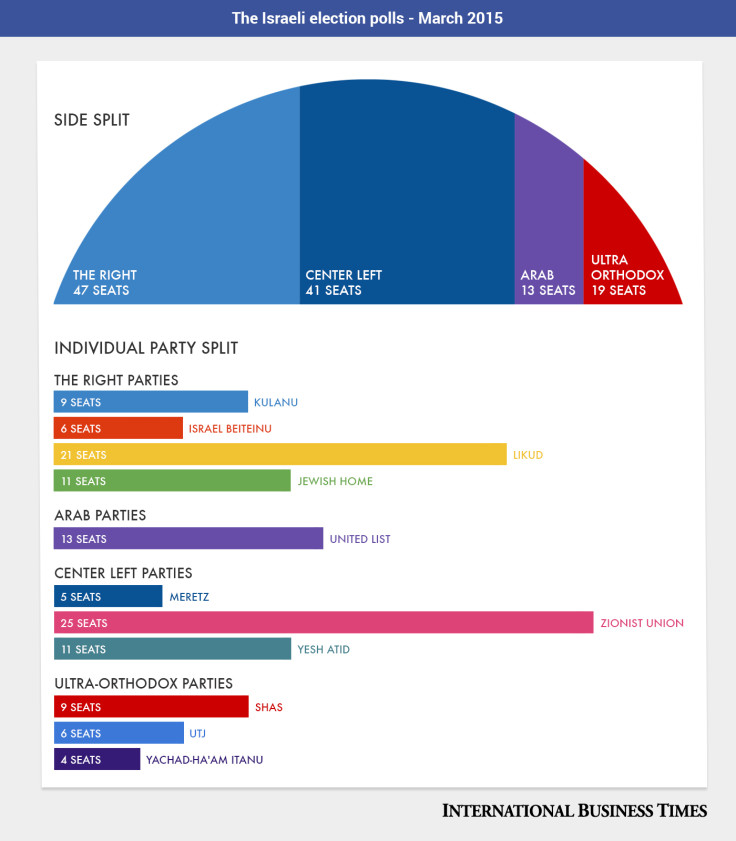
Likud party members are sending SMS to voters reading: "The voter rates among Arabs are 3 times higher! The fear is materialising!" according to reports:
Netanyahu and the Likud party are panicking about high turnout in Arab community. In a new Facebook video, the incumbent prime minister said:
The right-wing government is in danger. Arab voters are going to the polls in droves. Left-wing organizations are bussing them out. We have no V15, we have Order 8 [code for emergency call up to IDF reserve duty], we have only you. Get out to vote, bring your friends and family, vote Likud in order to close the gap between us and 'Labor.'
Barak Ravid argues on Haaretz newspaper that even if Bibi wins, his political era might be already over:
The prime minister understands that if he leaves that residence, he won't be going back. But even if he manages to summon, yet again, some kind of political magic and forms a coalition, its only real foundation will be trying to hold onto power temporarily. Netanyahu's physical departure from the political arena would only be postponed for a year or two, and the result of the next election would only be a tougher, more profound loss.
An Arab lawyer, Ayman Odeh, and his Joint List of diverse Palestinian Israeli parties are expected to get as many as 15 seats in the general elections, putting him in third place after Bibi and the Zionist Unity.
He said he is excited to "become part of the history".
Like every other Arab citizen of the state I am excited to vote, to become part of the history and turning point that will significantly change the reality of life of Arab and other citizens of the country.
Read the article here.
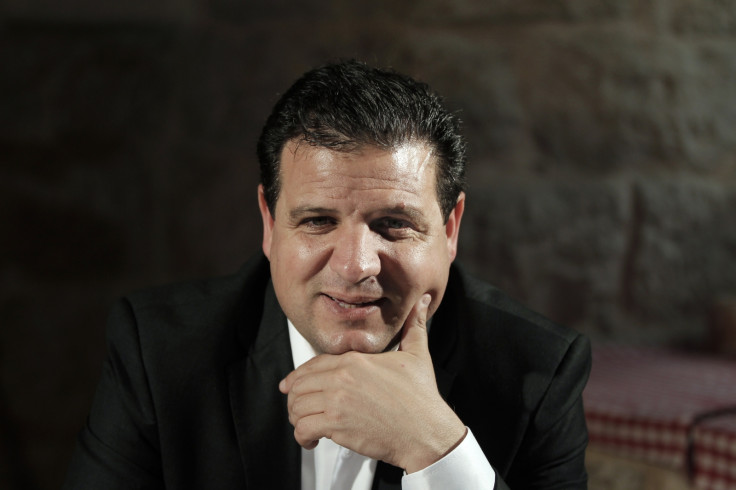
If Bibi Netanyahu wins again, he would be on track to become Israel's longest serving prime minister, Luke Baker writes for Reuters.
Netanyahu's campaign has focused on the threat from Iran's nuclear program and the spread of militant Islam. But it's a message many Israelis say they are fed up with and as a result the center-left's campaign on socio-economic issues, especially the high cost of living in Israel, appears to have won more traction with voters.
Read the article here.
The Palestinians have reacted to Netanyahu's historic U-turn on the two-state solution to the Israel-Palestine conflict.
Xavier Abu Eid, a spokesman for the Palestine Liberation Organization (PLO) told IBTimes UK that Netanyahu "was elected in 1996 saying he was going to kill the Oslo peace process and somehow he did it".
We knew he doesn't want a Palestinian state. The two-state solution was not part of his political programme or of the Israeli government. But the settlement expansion was [part of the agenda]. We've been saying that for years.
Netanyahu visited the Jerusalem settlement of Har Homa one day before the general election and for the first time openly admitted to building settlements to disrupt a potential Palestinian state between Bethlehem and Jerusalem, which the Palestinians see as their future capital.
Abu Eid told IBTimes UK:
It's very sad that Israeli politicians have to campaign on who's going to annex more land in order to win the elections. It's very sad that they're going to campaign on who's going to violate international law the most to win an election
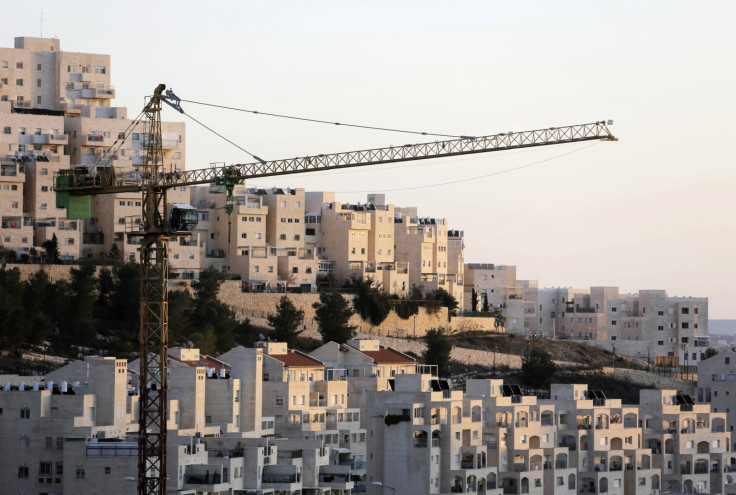
In a last-minute attempt to poach votes from right-wing electors, Netanyahu has backtracked on his historic 2009 Bar-Ilan University speech saying that as long as he is Israeli prime minister, a Palestinian state will not exist.
I think anyone who is going to establish a Palestinian state and to evacuate territory, is giving radical Islam a staging ground against the State of Israel,
he told NRG website. Asked whether under his watch "there will be no Palestinian state", the Likud leader replied "Indeed".
Read the article here.
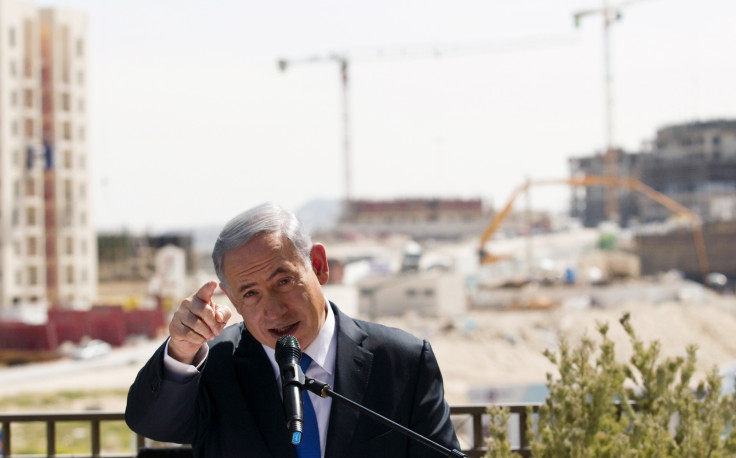
The real surprise of this election is Zionist Union co-chairman Isaac Herzog, a veteran Labour politician who is the son of a seminal Israeli leader and the grandson of one of its most famous rabbis.
His coalition deal with Tzipi Livni, former minister and chief negotiator with the Palestinians, made Herzog a serious contender for the first time since the elections of Ehud Barak in 1999.
Our executive editor Orlando Crowcroft takes a look at the life and career of the man who may be Israel's next prime minister.
In terms of what kind of prime minister Herzog will make, there are hopes he would take a more conciliatory approach to peace with the Palestinians, especially given his recent comments on Netanyahu's failures.
Read Herzog profile here.
© Copyright IBTimes 2025. All rights reserved.



